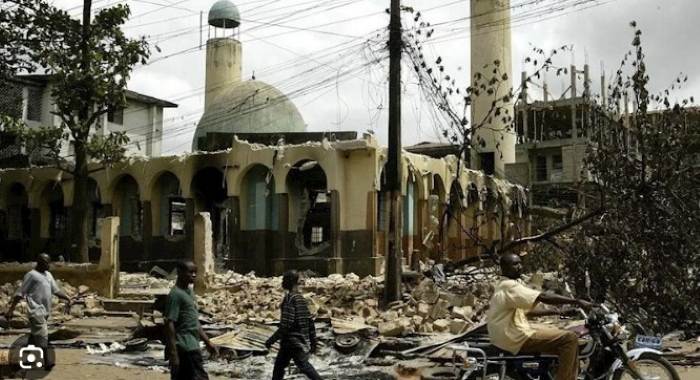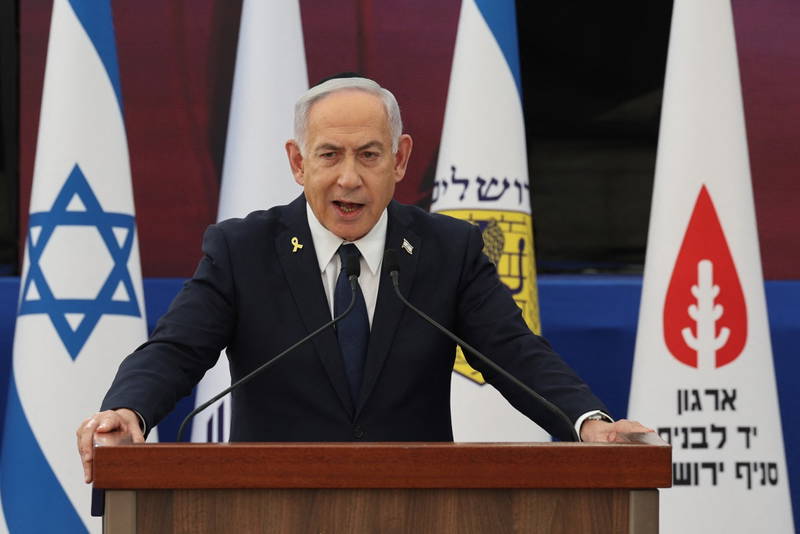Nurudeen Oyewole digs out some beneath-the-sufface information from the other end about what Africa will face in the raging Russian-Ukrainian war
As the booms of guns shots, the bangs of bomb blasts and the smothering of missile shelling swell the air across the length and breadth of Ukraine on Thursday, February 24, the doubts, guesses and projections of potential war between Russia and Ukraine have been laid to rest while the reality of an impending Armageddon inches closer.
But while the world powers scramble from west to east, north to south to decipher the tragedy and in quest to develop robust containment plan, attentions are largely shifted away from Africa, a continent though not geographically situated with the warring parties, but one that is prone to suffer both immediate and latent consequences of the war.
Just few days ago, the powerbrokers in the European Union were hosting and cozying up with 40 African leaders in Brussels, Belgium. The major takeaway from that get-together was the promise of €150 billion worth of investment by the regional body on the continent of Africa. But just at the time the EU was delivering the promise of its largesse in Brussels, explosions were taking off in Donetsk, the capital city of a self-proclaimed Republic in Eastern Ukraine, some 2,413 kilometres (Google estimates) away.
For the average minds, the link between EU financial promises in Brussels, the bomb explosions in Donetsk and how all these affect Africa may appear opaque.
READ ALSO: 40 killed, Nigerian Students Trapped As War Rages In Ukraine
Indeed, on the surface, the on-going conflagration may appear to be the headache of just the two neighbours. However, the involvement of the North Atlantic Treaty Organisation (NATO) being led by Washington and its allies in Europe in support of Ukraine, has emboldened the perspective that this is more of a test of might and a proxy war between the super powers – US and Russia, hence the dub: the worst interest clash of superpowers since the cold war era.
If anything, the world should dread a return into the cold war era, when countries had to show allegiance either to Moscow or Washington or simply stay unaligned.
Unfortunately, the structure of allegiance under cold war era is gradually taking shapes in the unfolding scenario. Russia has the support of China (another superpower), Belarus and many of the former soviet countries which economies are still tied to it, while Ukraine is enjoying the backing of the US and all of its NATO members, many of which are in EU. For instance, the three largest economies in EU: Germany, France and Italy are all members of NATO. The treaty also includes others like Spain, Netherlands, Portugal, Slovakia, among others. And except for Canada and United States, all other members of NATO are in Europe.
It is almost certain therefore, that in the event of a prolonged war, many EU countries that get entangled through commitments in NATO will remain pre-occupied and have their attentions solely focused on the conflict. And for Africa that has its economic sustainability tied to aids and grants from these European countries, the Foreign Direct Investments (FDIs) from their countries and remittances from Africans in Diaspora – many of whom in Europe, expectation of fulfilment of EU’s promise of €150 billion investment in the continent, may suffer not just a setback, but one that may remains in doldrums.
READ ALSO: Trump Hails ‘Genius’ Putin over Russia’s Military Action In Ukraine
If Europe disinterest lingers as noted, Africa will further be left in limbo, making it weaker to further be preyed on or be drawn closer to China, a global power that its investments on the continent are being viewed with scepticisms and has also developed cold feet in granting further loans to African leaders who struggle to repay those earlier collected.
Yet the tragedy for Africa extends beyond stalled or shrink financial aids, FDI and diaspora remittances. A Non Governmental Organisation, African Council in Ukraine, in a 2021 report claims that some 30,000 African students are studying in Ukrainian schools.
Until now, Ukraine, an old Soviet entity had actually been attracting large number of foreign students to its domain through affordable tuitions, while also marketing its cordial relationship with EU to gain acceptability of the intending African students. It is one route many Africans, especially those in quest for not just education but an entrance into EU economy have had to embrace over time.
READ ALSO: Interfere In Ukraine War, Suffer Severe Consequences, Putin Warns US, UK
A Nigerian friend who once attended Ukrainian University but now reside elsewhere shared a number of pathetic videos and pictures, claimed to have been sent to him by trapped Nigerian students in Ukraine on the first day of the battle. Unlike citizens of other countries that their home governments had assisted to leave the country at the early stage, over 30,000 future of a continent are now trapped in the mudslinging of bombs and missiles.
On food security, Africa is still widely dependent on food import from Europe and other continents. Notably, the International Grain Council identifies both Russia and Ukraine as major producers of wheat. While the former contributes 10% of the global wheat production, the latter contributes 4%. Specifically, Egypt, one of African powerhouses has been identified as number one global importer of wheat with most coming from Ukraine. On the trail of Egypt are Sudan, Nigeria, Tanzania, South Africa, among others. If the war lingers, it’s a matter of time for Africa to start experiencing skyrocketing food prices especially for staples like wheat.
On the same trajectory with food import is the rising energy prices. The Russian-Ukrainian war has been pinpointed as one of the numerous factors for the rise because Russia is a global power in oil and gas sector. While for countries like Nigeria, Angola, Algeria and other oil producing countries in Africa, the upsurge in the global price of crude should be good news, the downside is the inability of large percentage of citizens in these countries to pay attendance price hikes.
Also, gas prices which even before the on-going conflict had been on the astronomical rise, is now shooting through the roof as supplies from Russia are expected to nosedive in the next few days, owing to barrage of economic sanctions being imposed by western powers. Significantly, a global shortage of gas has grim consequences for households in Africa because the outputs from the likes of Algeria, Egypt, Libya and Nigeria, among others are likely to be under pressure if scarcity bites harder in Europe.
Whereas, the immediate and latent effects of Russian-Ukrainian war on Africa can be situated within the context of global village and growing interconnectivity, yet such impacts would be minimal if political leaders on the continent have been futuristic and had learnt to devise socio-economic cum political independence strategies capable of insulating their people against geo-political crises like the one currently playing out in Eastern Europe.
Oyewole, a top journalist and researcher, writes from Europe





